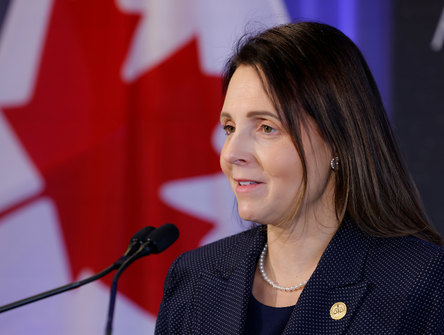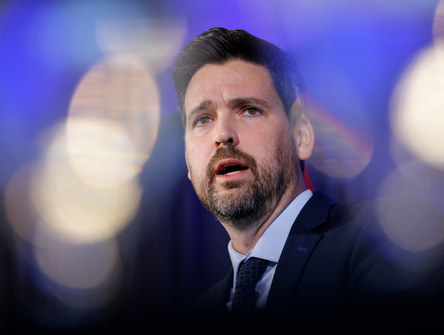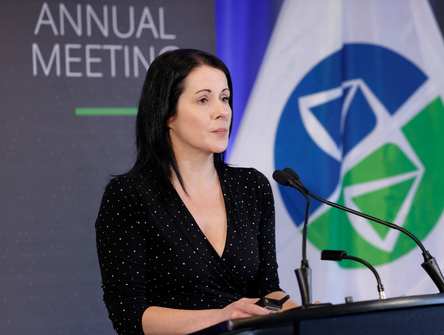From greenwashing to greenhushing
Faced with consumer-protection provisions aimed at false corporate environmental claims, some companies have stopped making them entirely

A year after Parliament enacted amendments to the Competition Act prohibiting deceptive environmental claims, known as greenwashing, a new phenomenon has emerged—greenhushing.
The anti-greenwashing provisions are aimed at protecting consumers from environmental claims for products or policies. This can include boasting of “reaching net zero by 2035” or touting a recyclable product that isn’t—unless these claims can be proven.
The rules were passed more than a year ago and met a barrage of opposition from the oil patch, other companies, and the Alberta government. Two Alberta business groups, which claim the legislation violates their constitutional right to free speech, are challenging the anti-greenwashing provisions in court.
When the guidelines for enforcing the anti-greenwashing provisions were published in final form by the Competition Bureau in June, Alberta Environment Minister Rebecca Schulz dismissed them as “censorship laws that prevent businesses from talking about the very work and goals” needed to make Canada an energy superpower.
Instead of encouraging companies to make honest, verifiable claims about their environmental record and commitments, many have instead decided to downplay those claims or stop making any claims at all. The rationale appears to be that it’s safer to go quiet rather than face legal trouble and potentially hefty fines if their environmental claims are challenged before the Competition Tribunal. Hence, the term greenhushing.
In 2024, days before the legislation received royal assent, Pathways Alliance, a coalition of Canada’s six largest oil sands producers, cleared its website of all content related to the industry’s environmental and climate performance claims, citing uncertainty over the vagueness of the rules. Other fossil fuel companies followed.
Provisions fuel a pullback
Conor Chell is a partner and international ESG lead at KPMG Law in Calgary. His clients include energy and natural resources firms, as well as companies involved in financial services and consumer goods. He says a major result of the new rules has been a pullback from environmental claims.
“I would say that the vast majority (of companies) have either removed their disclosures or revised them quite significantly in light of the anti-greenwashing rules,” he says.
While some companies have since returned with some disclosure, it’s been “in a scrubbed or sanitized manner.”
Chell tells corporate clients, non-profits, and non-governmental organizations subject to the rules that it’s important for them to “mitigate their risk and be as proactive as possible to avoid complaints in the first place.”
Given the private right of access provisions in the new Act, he expects to see complaints from activist investors, environmental groups and even disgruntled employees alleging deceptive marketing practices made directly to the Competition Tribunal. Previously, that was something only the Competition Bureau itself could do. Although the Tribunal may deny leave for a case to proceed, complainants can still issue news releases and have a public relations impact.
According to Jennifer Quaid, a law professor at the University of Ottawa, the corporate reaction to the anti-greenwashing rules has been excessive.
The reality is that Canada has simply caught up to other jurisdictions.
“There are anti-greenwashing rules in 30 countries in jurisdictions like the European Union and the UK,” she says.
Quaid says the rules benefit not just environmental groups but also companies doing exemplary climate-related work who want to get credit from the public. As the final guidelines, they are hardly onerous.
“The standard is pretty low. An adequate and proper test is not a scientifically vigorous test,” she says, referring to some of the requirements.
‘Trump reaction mode’
Quaid is particularly outraged at the Royal Bank of Canada, which dropped its commitment to facilitate $500 billion in sustainable finance in April, specifically blaming the anti-greenwashing rules.
“Recent amendments to Canada’s Competition Act limit the information we can share on certain sustainability disclosures and the progress we are making and have restricted our ability to publicly report on several metrics,” the bank said at the time.
Quaid says the bank’s stance is completely disingenuous.
“When the Royal Bank says they’re moving away from climate targets because of the rules, that is just bullshit. It’s nothing to do with the rules. The fact that (you) no longer want to have an ambitious plan has nothing to do with greenwashing. It’s a cover.”
She speculates other considerations are at play.
“They may have been realizing that spearheading sustainable finance was not delivering the returns they wanted.”
And with everyone in what she calls “Trump reaction mode,” companies might be saying to themselves, 'I don’t want to do anything that might irritate this person or attract attention to me in a negative way.'
Quaid says the risks faced by companies are overstated. For one thing, it’s unlikely there will be a flood of anti-greenwashing cases undertaken by the Bureau.
“They have enforcement capacity limitations, so they will focus on the worst cases. The Bureau will have to be strategic.”
Climate work continues
Lisa DeMarco, senior partner and CEO at Resilient LLP, a boutique climate and environment law firm, says the publication of anti-greenwashing guidelines was meant to provide companies with “a certain clarity” so they could know what kinds of claims would fly or not with the regulator. In the meantime, “the kneejerk reaction you’ve seen with some is ‘we’re not going to disclose.’”
Even after the guidelines' publication, there’s still concern about what “adequate and proper testing” means and whether it’s supported by “internationally recognized methodology,” two of the key parameters included in the guidelines.
While De Marco acknowledges there is some greenhushing going on, she doesn’t think companies have abandoned their climate policies.
“We’re not seeing a huge change in what companies are actually doing to address the risks of nature and climate change,” she says.
De Marco recently authored a legal opinion about the legal duties of Canadian company directors to address a wide range of climate and nature-related risks, including transition risks such as new regulations and shifting market expectations.
Commissioned by the Commonwealth Climate and Law Initiative, the opinion addresses the current climate of uncertainty around ESG in North America and finds that Canadian company directors who ignore risks linked to nature and climate could face lawsuits for breaching their legal duties.
The opinion found the mining and energy sectors to be at greatest risk in this regard. The finance and insurance sectors also face systemic exposure to nature-related risks through their investments and underwriting of nature-dependent clients.
Chell says that while many organizations have toned down their public declarations, they continue to work on sustainability.
“It’s actually accelerated in many ways because emerging and developing economies globally represent huge opportunities from a financial perspective.”
Nevertheless, he expects some uncertainty to remain until the first anti-greenwashing cases actually get adjudicated by the Competition Tribunal.
That first case is now in the works. In August, Kristen Overmyer, a Nova Scotia-based engineer and consultant, filed a greenwashing complaint against EverWind Fuels Inc., a Halifax-based company developing a facility in Point Tupper, Nova Scotia, to produce green hydrogen and ammonia for export to Germany.
Overmyer claims EverWind has made expansive claims that it will produce “green hydrogen to decarbonize the world,” but has provided “neither test results for their products nor adequate and proper substantiation based on internationally recognized methodologies such as life-cycle emissions analysis.”
When government toes the industry’s line
Julien Beaulieu, a lawyer from Quebec working on a PhD on environmental policy and corporate climate responsibility at Imperial College in London, says he’s not overly concerned about companies making fewer climate claims.
“I don’t think it’s entirely bad because this means that they are committing less, but the information that they’re going to share in the future is going to be precise, accurate and verified. Maybe that’s good. Sometimes less is more.”
As for RBC, he says it’s possible they’re continuing to be active in the climate space, but don’t want to talk about it.
“It could be that they’re doing the same as before, but they’re not marketing it anymore.”
When it comes to greenwashing, corporate claims aren’t Beaulieu’s only concern. He points to the fact that in June, Prime Minister Mark Carney committed to promoting major infrastructure projects that would favour “decarbonized oil and gas.”
Beaulieu was taken aback, as he’s not sure whether decarbonized oil and gas even exist. He acknowledges there’s work going on to capture carbon in oil production, but as for downstream emissions, the oil that goes in cars will be burnt.
“That’s the whole idea of the thing,” he says.
“When you see the government picking up these industry lines, for me that’s also greenwashing.”


